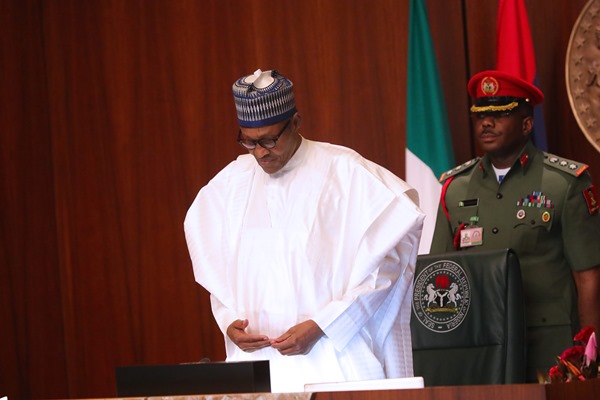
The Information and Communications Technology (ICT) Sector in Nigeria has witnessed tremendous growth during four years of President Muhammadu Buhari’s administration.
Information Technology (IT) experts collectively attribute the growth to the wide range of policies put in place by the Federal Government.
Gbenga Adebayo, Chairman, Association of Licensed Telecommunications Operators of Nigeria (ALTON) in his candid assessment, says the Federal Government has done quite well in the last four years.
“I think it will be fair to say a score of 80 per cent, owing to the progress the administration has made in the past years, ‘’he notes.
Adebayo says the industry has made a lot of progress in terms of broadband penetration; hence, achieving the broadband target and even surpassing it.
“We have more Foreign Direct Investments (FDIs) coming into the ICT sector and because of the relatively stable policy of government, the industry has been able to support a number of other sub-sectors of the economy.
“So, on the average, we are able to say that the Buhari’s administration has done quite well in the last four years,’’ he says.
Adebayo says unfortunately it appears that the progress of telecommunications in the country is being taken for granted.
He laments that telecommunications no longer has a mention by the government as one of the priority sectors.
According to him, it should not be, because ICT is a major driver of the economy.
“We are the infrastructure of infrastructure and we think that wherever issue of development is being discussed, ICT should be in the forefront.
“Other sectors that the government is making efforts to develop are all dependent on ICT in one way or the other.
“So it would appear that we are no longer in the first line of interest of government; which should not be.

“As you know, we are in technology industry and technology is changing by the day; hence, the need for new investments, for new hardware and software.
“So we think that as part of our development as a nation, ICT should continue to be one of the issues of development that we should consider,’’ Adebayo explains.
He says there is no enough protection of the industry by government, as there are issues of base stations’ closure and seizure.
Adebayo says the industry is quite vulnerable and such vulnerability has exposed the issues of multiple taxation and multiple regulation.
According to him, taxes and levies have increased to 39 across all tiers of government in the country.
“I think that government should consider harmonisation of the taxes and levies. Telecom is on the exclusive list of the Federal Government.
“It is the responsibility of the Federal Government to protect the sector, even from issues of interference, multiple taxation and regulation.
“So in my view, the major problem that we face is the issue of site closure and multiple taxation.
“We have issue of foreign exchange and government solved the problem. So the issue of multiple taxation is something the Federal Government must look into.
“I think the time has come that government should take up ownership and protection of infrastructure. We continue to require investments both foreign and local investments; and people will not invest if the industry is unstable, ’’ he says.
Ikechukwu Nnamani, the Chief Executive Officer, Medallion Communications says the Buhari’s administration has done well in the arrangement reached by the National Executive Council in respect of Right of Way (RoW) fee.
Nnamani says a number of states have been able to lower their RoW rates, which has enabled deployment of more fibre infrastructure.
Muhammed Rudman, the President of Nigeria Internet Registration Association (NIRA) wants the Federal Government to prioritise significant investments in ICT infrastructure in the next four years.
Rudman notes that although through government’s contributions to the ICT, the industry has been able to deepen broadband penetration by 33 per cent but more effort needs to be made in ensuring that the rural areas also benefit from it.
He explains that the government already has laid-down policies regarding the ICT industry.
“The best time to implement the policies, which include the deepening of broadband penetration and building infrastructure is now.
“My advice is actually to have an ICT roadmap, that would ensure both the government and private sector identify all the stumbling blocks in the industry and address them.
“The players in the ICT industry should actually have an agenda that they will push to the government every year, so that the sector can grow,’’ he suggests.
Rudman points out that it will go a long way if the president can also resolve the issue of RoW and multiple taxation which are some of the major challenges faced in the industry, most especially by telecom companies.

He notes that those challenges were some of the things slowing down the telecommunications industry, while urging the government to address the issues.
The NIRA boss adds that the government needs to continue investing heavily in the sector, because it has played a big role in terms of revenue generation and also creating employment for citizens.
Also speaking, Chief Deolu Ogunbanjo, the President of the National Association of Telecommunications Subscribers (NATCOMS) says a lot has been achieved in terms of broadband penetration during the President’s four-year tenure.
“In 2014 to 2018, broadband was between 18 to 20 per cent.
“However, according to Nigerian Communications Commission (NCC), we now have 33 per cent broadband penetration, which shows that a lot has been achieved in last four years of the Buhari’s administration.
“To sustain the growth, the government should set another benchmark for 2019 to 2023 where we should be looking at a minimum of 70 per cent or more broadband penetration.
“The government through some of its agencies like NCC is ensuring that Infrastructure Companies (InfraCos) develop both the rural and sub-urban areas.
“NCC is supporting infracos by giving them some money to develop their structures and services,’’ Ogunbanjo notes.
He also suggests that government needs to have refined policies that will gear the industry toward achieving 75 per cent penetration by 2025.
Ogunbanjo urges the Federal Government to invest more in the sector because the ICT industry is the future of Nigeria, aside from oil and agriculture.
Most ICT industry experts are of the opinion that President Buhari’s administration has done quite well in the ICT sector of the economy and can do better in the second term.
The expert, however, note that the industry is a work in progress.
They point out that it is imperative to tackle the challenges of multiple taxation and multiple regulation, if further growth must be achieved in the ICT industry.













